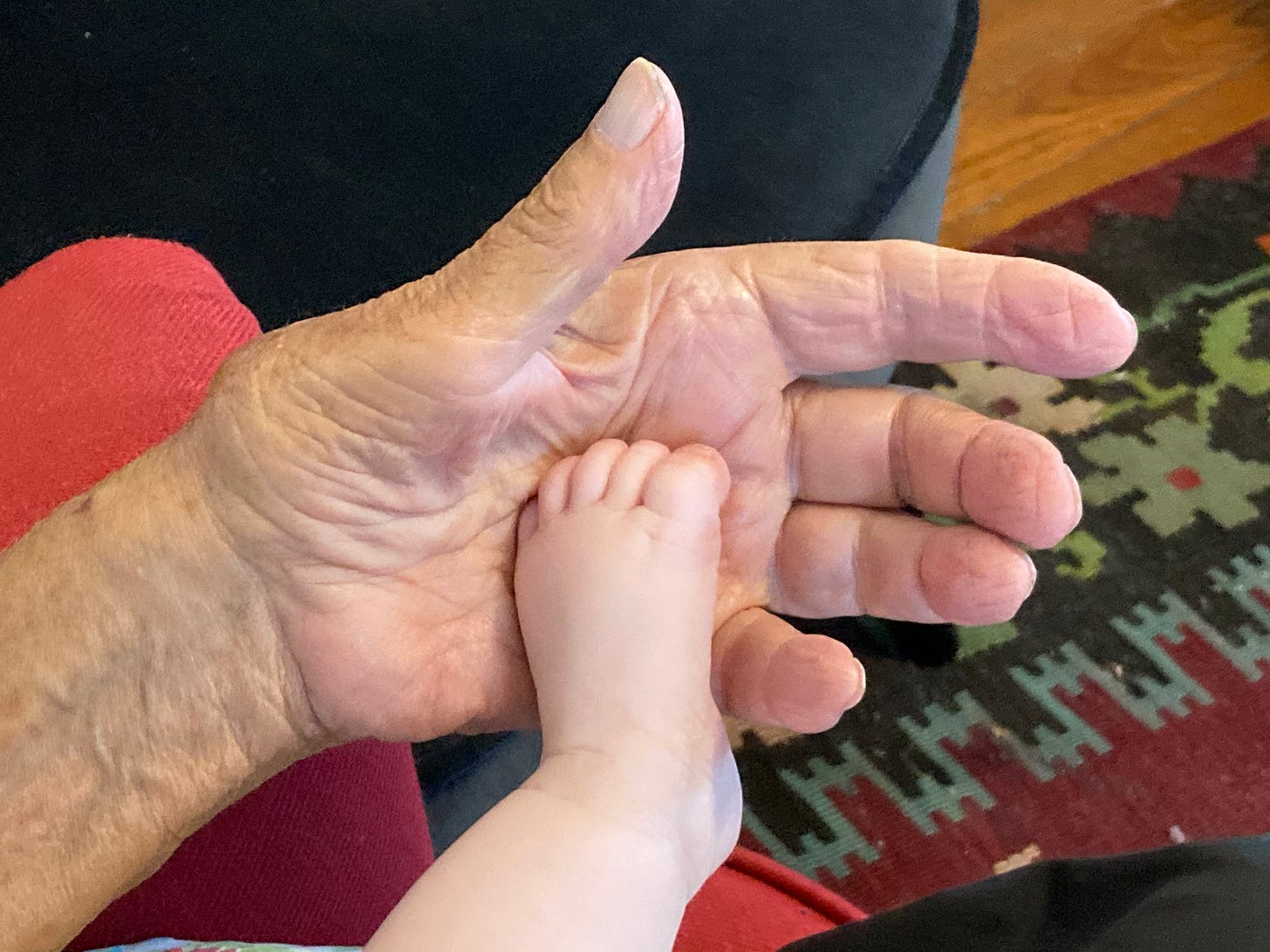The Dignity of Dependence
Our physical weakness is a training ground for our struggles with moral weakness
Because of the holiday this week, I’ll be waiting until next Thursday to post highlights from your recommended works of art that depict women well. Other Feminisms will resume its usual Monday and Thursday schedule next week. In the meantime, I wanted to use this short week to share a piece of my own writing.
In the new issue of Plough, themed around the family, I have an essay on the dignity of dependence. In the four years of my marriage, my husband and I have welcomed seven children, and mourned as only one of them, Beatrice, made it safely through the first trimester and to birth. I have spent a lot of those years in the kingdom of the sick, in Susan Sontag’s phrasing.
Everyone who is born holds dual citizenship, in the kingdom of the well and in the kingdom of the sick. Although we all prefer to use only the good passport, sooner or later each of us is obliged, at least for a spell, to identify ourselves as citizens of that other place.
In my piece “Dependence: Toward an Illiberalism of the Weak,” I have tried to lay out an alternative vision of a culture that takes weakness as part of the core of who we are, not a temporary, embarrassing condition.
A world that holds up independence as the ideal offers us two rival duties: to obscure our dependence and to be resentful of it. No woman can lightly assent to the illusion of autonomy. Because a baby is alien to the world of self-ownership, every woman’s citizenship in that imaginary republic is tenuous. A world of autonomous individuals can’t acknowledge both woman and child simultaneously. The sheer amount of work it takes to stifle fertility, put eggs on ice, or pump milk for a baby not welcome outside the home makes it clear that there is something untruthful and sharp-clawed at loose in the world.
Fear and hatred of weakness and dependence wound the dependent most obviously, but are poison to all, even the people who are strong at present. Without repeated reminders that the broken are beloved, how can we remember who God is?
Our physical weakness is a training ground for our struggles with moral weakness. There is no physical infirmity we can endure that is more humiliating than our susceptibility to sin. The elderly woman with tremors that leave her unable to lift her cup to her lip is not, in the final sense, weaker than any vigorous young man who finds he must echo Paul and admit, “For I do not do the good I want, but the evil I do not want is what I do” (Rom. 7:19).
I’m glad to have this substack and all of you as a place to sustain this conversation going beyond any one piece or single cycle on social media.
—Leah


